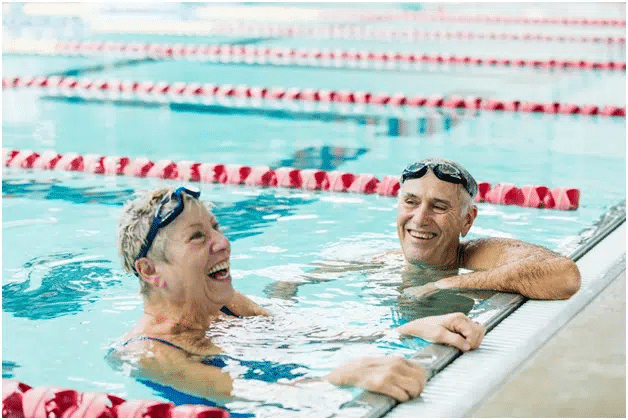Staying Active with Hearing Aids in Philadelphia, PA
It’s important to maintain a healthy and active lifestyle. If you wear hearing aids, you might have trouble keeping them in while working out or worry they could get damaged. To maximize the benefits your hearing aids provide, caring for them properly is essential. A simple drop on the floor can damage the sensitive technology within, so you should always be extra cautious when handling your hearing aids.
Below, the hearing care providers at Main Line Audiology discuss how patients can stay active without damaging their devices and properly caring for them following any physical activity. Contact us to learn more about maintaining an active lifestyle as a hearing aid wearer, or schedule an appointment at one of our hearing care centers in Philadelphia, PA, and the surrounding areas.
How to Keep Hearing Aids in Place
One of the most important parts of caring for your hearing aids while working out is ensuring they don’t fall out and get damaged. There are several hearing aid accessories you can wear to keep them in place and ensure they’re secure, including:
- Clip– These sometimes hook around the back of your neck, but most clips attach to the ear itself. They also provide an extra cushion of protection for the external parts of your hearing aids.
- Headband – Sweat can damage hearing aids, even if they’re water-resistant. The smallest particles of moisture can make their way into the small internal components of your devices, causing corrosion and damaging them beyond repair. High-quality headbands are designed to protect hearing aids and keep moisture out, ensuring your investment lasts.
- Skull Cap – These fit over your ears and head to secure your hearing aids. They also help keep you cool while working out.
Reach out to your hearing care specialist at Main Line Audiology to discuss the perfect accessories for your specific hearing aid type.
Staying Mindful of Sweat & Moisture
Even if you can’t visibly see sweat on your body while working out, it can build up and infiltrate your devices if you’re not careful. The smallest amount of moisture can cause a hearing aid to stop working properly, so it’s always a good idea to use a headband, cap, or clip to prevent sweat from getting in your ears. If you’re worried about moisture, it might be best to leave your hearing aids in a safe location, like your locker at the gym.
Caring for Your Hearing Aids After Working Out
Once you’re done working out, it’s important to set aside some time to properly care for your hearing aids. You can bring disinfectant wipes (made to clean hearing aids) to the gym to wipe them down before heading home. However, using the cleaning kid your hearing aids came with once you get home is a good habit to start. Using a hearing aid dehumidifier at night also helps eliminate any moisture present. Remove the batteries and keep them in a cool, dry place. Some hearing aid dehumidifiers include an area to keep your batteries safe and secure.
Is It Worth It to Take Hearing Aids to the Gym?
You might wonder if bringing your hearing aids to the gym is worth the risk of them getting lost or damaged. Leaving them at home might be less risky, but hearing aids are necessary for your personal safety because they keep you aware of your surroundings. If you have a personal trainer, you’ll want to be able to hear them clearly during your session.
Professional Hearing Aid Fittings for the Best Results
When you’re fit for your hearing aids, you should discuss all aspects of your lifestyle with your hearing care provider. They can match you with comfortable hearing aid types that stay in place, whether you’re jogging or lifting weights. Some hearing aids are water-resistant, so you might want to explore various devices and features available during your consultation. Your provider will help you choose hearing aids designed with active wearers in mind.
Some hearing aid designs are better suited for physical activities than others. For example, in-the-canal (ITC) and in-the-ear (ITE) devices have no external components, making them less likely to sustain damage when dropped. Behind-the-ear (BTE) devices are more exposed, making them more risky when participating in physical activities.
Contact Main Line Audiology Today to Learn More
If you live an active lifestyle and wear hearing aids, you don’t need to sacrifice one for the other. The hearing care providers at Main Line Audiology provide professional hearing aid fittings to match you with a pair of devices that meet your hearing loss needs, personal preferences, and overall lifestyle. Contact us for assistance with your hearing aids or to learn more about what we offer patients throughout the region. You can also schedule an appointment online for a one-on-one consultation at one of our conveniently located hearing care centers throughout Philadelphia, PA and the surrounding areas, including Jenkintown and Audubon.



